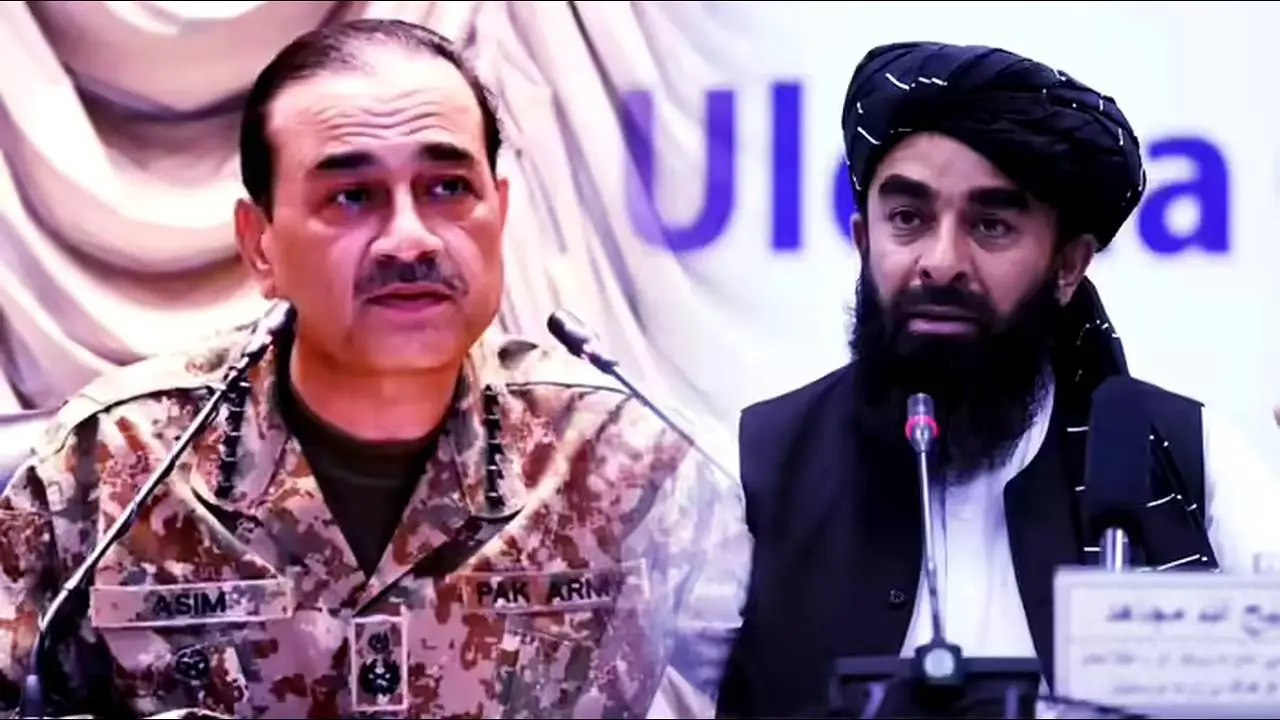
(Credit: OpenAI)
New Delhi: The peace discussions in Istanbul were meant to reduce tension between Pakistan and the Afghan Taliban. However, both sides came with different expectations and no common solution emerged. Pakistan accused the Afghan Taliban of supporting TTP militants who attack Pakistani forces. In response, Kabul rejected these claims and blamed Islamabad for creating the problem itself. The talks ended without any roadmap for future negotiations. Both sides left with frustration instead of trust. The collapse of the talks widened the gap between the two neighbors and intensified public statements.
After the talks failed, the Taliban spokesperson Zabihullah Mujahid issued a detailed public statement. He said Pakistan was falsely telling the world that TTP became stronger after the Taliban took power in Afghanistan. Mujahid argued that the rise of TTP happened long before their rule. He claimed TTP was created due to the actions of the Pakistani army in tribal regions. The Taliban presented past incidents, dates and records to support this claim. Their purpose was to remove responsibility from themselves. They insisted that the issue is Pakistan’s internal problem, not Afghanistan’s.
According to the Taliban, TTP emerged in 2002. This was during Pakistan’s military operations in Waziristan and nearby areas. Pakistan launched heavy bombing and raids in cooperation with the United States. These actions caused anger among local Pashtun tribes. Militants formed TTP as a reaction to what they saw as occupation and disrespect. The Taliban said their government had no involvement because they were not in power at that time. This timeline was their key evidence against Pakistan’s accusations.
The Taliban reminded Pakistan of Operation Al-Mizan in 2002. During this operation, Pakistan’s military targeted tribal fighters and villages. The Taliban said these actions pushed many locals into militancy. They added that Pakistan kept using force instead of dialogue. The conflict slowly spread and strengthened TTP. Thousands of civilians and soldiers died during this period. This history, they said, cannot be linked to the Taliban government in Kabul today.
Pakistan has been facing repeated attacks from TTP for years. Military checkpoints, police posts and government offices are frequent targets. Islamabad accuses Kabul of giving shelter to these militants now. But the Taliban say Pakistan is simply avoiding responsibility. They argue Pakistan wants to shift blame to Afghanistan to hide its policy failures. This blame game has increased distrust and tension. Both countries are unable to find a clear solution.
After the Taliban took control of Kabul in 2021, Pakistan expected them to help control TTP. The Taliban agreed to encourage peace but refused to fight or arrest TTP members. They said they would not start a new internal war. Pakistan wanted stronger action and felt betrayed. As attacks increased, pressure grew on Islamabad. Meanwhile, Afghanistan continued to say that the root of the issue was created years ago. The situation reached a breaking point during the Istanbul talks.
With talks failing, both nations are standing firm on their claims. Pakistan insists Afghanistan must prevent TTP activity. The Taliban insist Pakistan must fix its past mistakes and political strategy. No new meeting has been scheduled yet. The tension could affect border regions and trade routes. Experts warn that without cooperation, violence may increase. The issue now stands at a dangerous crossroads for both countries.





Copyright © 2026 Top Indian News
